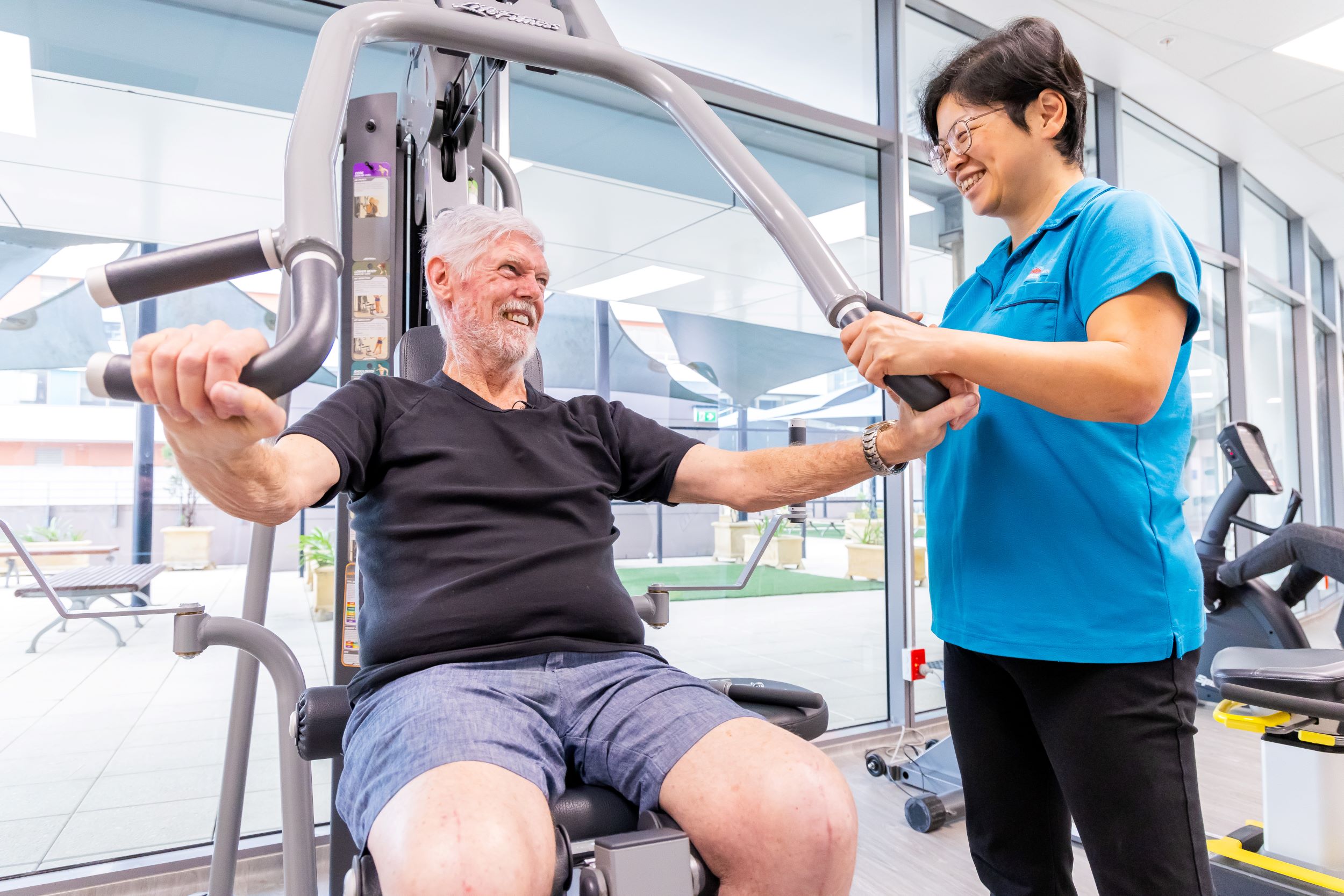
New rehab spaces help patients avoid surgery
Concord Hospital osteoarthritis patients benefit from new clinic and gym.

Concord Hospital has officially opened its new clinic for the Osteoarthritis Chronic Care Program (OACCP) and the Ground East Gym.
Sydney Local Health District Chief Executive Dr Teresa Anderson and Concord Hospital acting General Manager Joseph Jewitt joined Associate Professor Ana Ananda, Head of Department, Rheumatology, to open the new purpose-built facility.
Dr Anderson said the new clinical and gym spaces – which include an outdoor area – were ideal for the OACCP and would be very beneficial for patients.
“We know that in terms of rehabilitation … being able to look at the whole person is really important,” she said.
“So, this space will not only cater to the physical needs of our patients but, very importantly, their general health and wellbeing.”
Dr Anderson thanked staff in the District’s Capital Infrastructure and Engineering team for their work creating the new spaces.
Associate Professor Ananda said osteoarthritis affected about 2.2 million Australians and costs about $1.4 billion a year in knee or hip joint replacements alone. She said OACCP’s multidisciplinary team of clinicians and allied health professionals helped many patients to defer the need for such surgery.
“Our numbers for deferring hip and knee replacement surgery have been consistently above the state average,” Associate Professor Ananda said.
“But it’s not just the numbers, it's also patient experiences … patient outcome measures. And for those who do go on to have surgery, they are a lot fitter. They have much better post-operative outcomes. It's a win-win.”
The OACCP team includes rheumatologists, podiatrists, psychologists, dietitians, registrars and social workers, and focuses on helping patients lose weight and build strength around their affected joints. In recent years the program has helped about 13 per cent of patients defer the need for joint surgery and ensure those undergoing surgery emerge from it fitter and stronger.
Patient Bryan Sinclair, who has had both knees replaced, said the program helped him feel more comfortable about having surgery and helped him emerge from it stronger.
“I did get a lot out of the physio but every little aspect of the whole program makes it all work together,” he said.
“But I've recovered that well because I have done all the exercises they gave me, did build my muscles up in my legs, and it has helped my recovery tenfold.”
Mr Sinclair, who is back at work much earlier than he expected to be, said the support of the OACCP team helped him embrace the challenges he faced.
“I've been really behind it but I think you have to be,” he said.
“If someone offers you that much help and that much support, you'd be silly not to.”
Janet Lee said she is working with the program to prevent the need for surgery and she had learnt how to boost her strength to ease the pain in her knees.
She praised the “one-stop shop” that coordinated all her appointments and made it very easy to receive all the treatment and advice she needed.